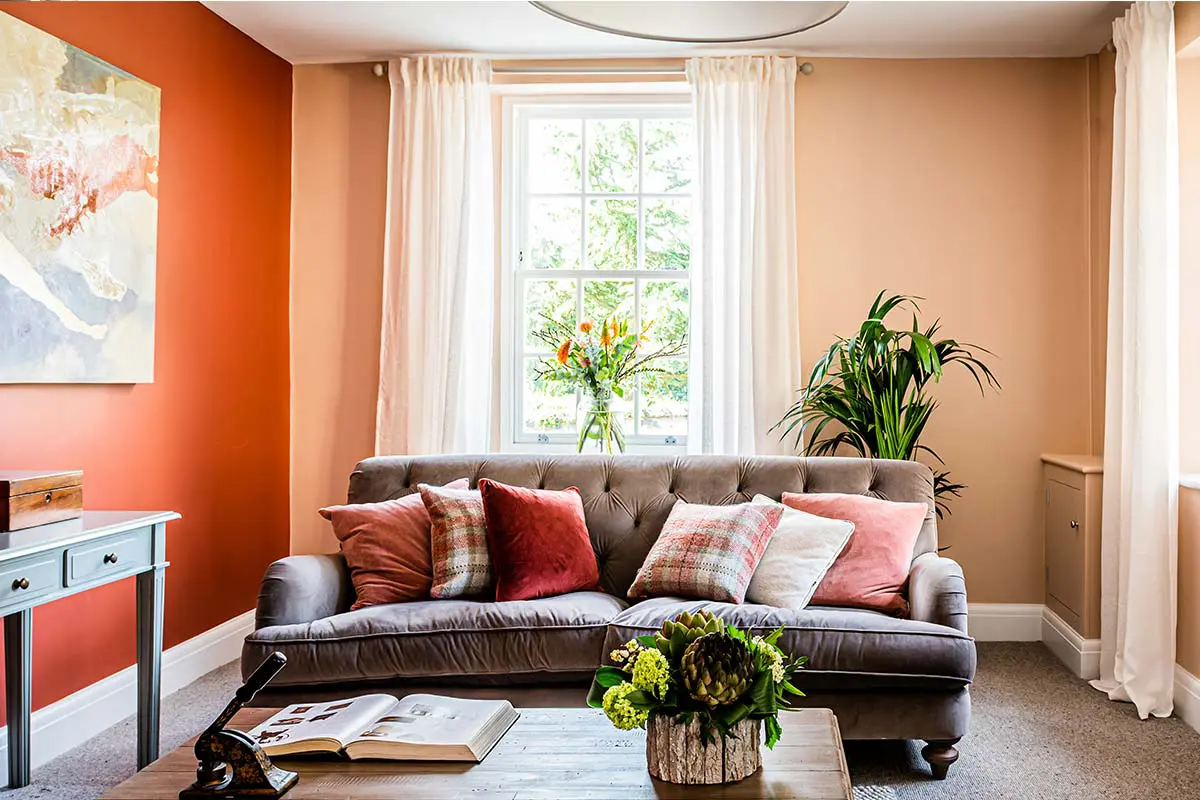Hardwood vs softwood windows: Performance, cost & when to use each
May 31, 2025 | Trade | Written by Nicola Harrison
Selecting the right timber for window frames is a decision that goes far beyond aesthetics. For trade professionals, the decision between hardwood and softwood has implications for performance, durability, cost and sustainability — not to mention the finish and appearance your client sees.
With tighter regulations and growing demand for long-lasting, energy-efficient products, it’s important to understand the real differences between the two timber types — especially when specifying premium, factory-finished timber windows.
This article provides a detailed, practical comparison of hardwood and softwood windows, focusing on insulation, durability, maintenance and cost. Drawing on Bereco’s expertise in manufacturing quality timber windows and doors from sustainably sourced materials, we’ll help you specify the right timber for every project.
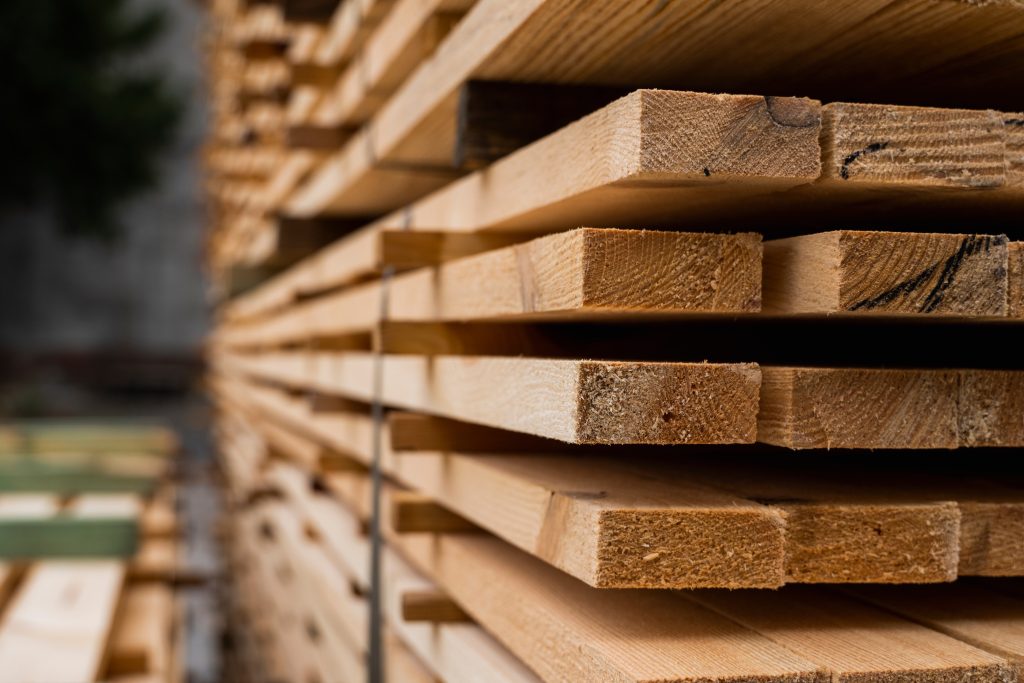
Understanding hardwood and softwood
The terms hardwood and softwood refer to the type of tree the timber comes from – deciduous trees for hardwoods, and coniferous or softwood trees for softwoods. At Bereco, only engineered softwood and hardwood from certified sustainable sources are used, ensuring every window frame meets both performance and environmental standards.
At Bereco, we exclusively use engineered laminated softwood and hardwood, with either FSC® 100% or 100% PEFC certification. These multi-layered sections are bonded with opposing grain directions to dramatically improve stability and reduce the risk of warping or movement over time.
Before assembly, every timber section undergoes individual anti-rot and fungal treatment, and once the frames are complete, they’re factory-finished with Teknos water-based paints and stains in a third party-accredited process — the same for both timber types. The result? A consistently high standard, whatever timber you choose.
Please note: Not all timber window manufacturers treat or finish their products to this level. These performance and protection measures are specific to Bereco products.
- Hardwood (e.g., dark red meranti) is denser, with a more pronounced grain structure. It’s often favoured for projects where natural grain definition is important or where extra durability is desired.
- Softwood (e.g., laminated redwood) is lighter and smoother, ideal for painted finishes, and provides a more cost-effective alternative for many projects.
Thanks to modern processing and protection, both timber types offer exceptional quality and longevity when sourced and manufactured to the right standards.
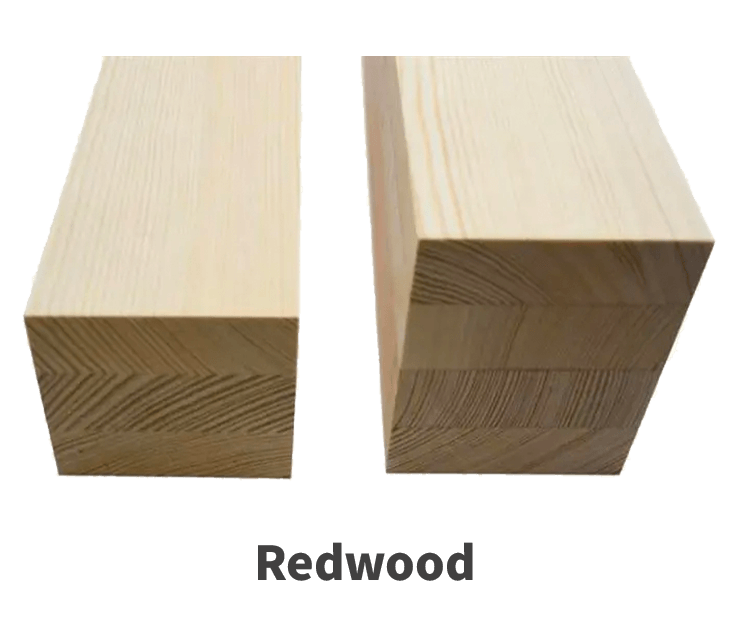
Bereco’s preferred timber: European Redwood
At Bereco, we primarily utilise European Redwood (Pinus Sylvestris), also known as Scots Pine, in the creation of our timber windows and doors. This softwood, which we source from Northern Europe, offers several significant advantages:
- Redwood forests are highly effective at storing carbon, making this timber an environmentally responsible choice.
- European Redwood has a low rate of moisture absorption compared to other species. This reduces the likelihood of the wood expanding or contracting, which is essential for creating stable window frames.
- The natural tannins found in European Redwood provide innate resistance to insects and rot.
While we primarily use European Redwood, we know that certain projects might require different wood properties. That’s why we offer both softwood (our European Redwood) and hardwood options. Our hardwood selection, Dark Red Meranti, is an excellent alternative. It features a more open grain, which provides a distinctively textured finish, especially when stained.
Insulation
Thermal efficiency is a key consideration for any trade professional. Both hardwood and softwood windows manufactured by Bereco exceed current building regulations, with double glazed units achieving U-values from 1.3 W/m²K and triple glazing from 0.8 W/m²K. While hardwood’s density can offer a slight thermal mass benefit, in practice the difference is marginal. Both options deliver excellent energy efficiency when correctly specified.
Durability
Durability is where engineering and treatment matter most:
- Hardwood windows are renowned for their dense structure and resistance to rot, moisture, and insects. This makes them an excellent choice for exposed locations or projects requiring a long lifespan with minimal intervention.
- Softwood windows are less dense and can be more susceptible to moisture if not properly treated, but modern engineered softwood – like that used by Bereco – offers impressive durability and stability, especially when combined with our advanced coatings.
Because our softwood and hardwood undergo identical treatment and finishing processes, both carry the same 30-year warranty against rot and fungal decay, and can offer lifespans of 60 years or more with simple routine maintenance.
Maintenance requirements
Proper care is essential to maximise the lifespan of any timber window. Both hardwood and softwood windows from Bereco are supplied with advanced coating systems that significantly reduce maintenance cycles, and mean that both timber types have the exact same maintenance requirements.
However, you should always check the manufacturer’s guidelines as this may not be true for all timber window manufacturers.
Regardless of timber type, specifying high-quality, factory-finished windows from a reputable manufacturer is key to minimising maintenance and ensuring long-term performance.
Cost differences
Cost is often a decisive factor in the hardwood vs softwood windows debate.
- Softwood windows are generally more cost-effective, making them a popular choice for new builds, large-scale developments and projects where budget is a primary concern.
- Hardwood windows command a higher price due to the raw material cost and additional processing required. However, the increased durability and lower maintenance requirements can offer better value over the long term, particularly in demanding environments.
Bereco’s engineered softwood and hardwood windows are both FSC-certified, ensuring sustainability is never compromised for cost.
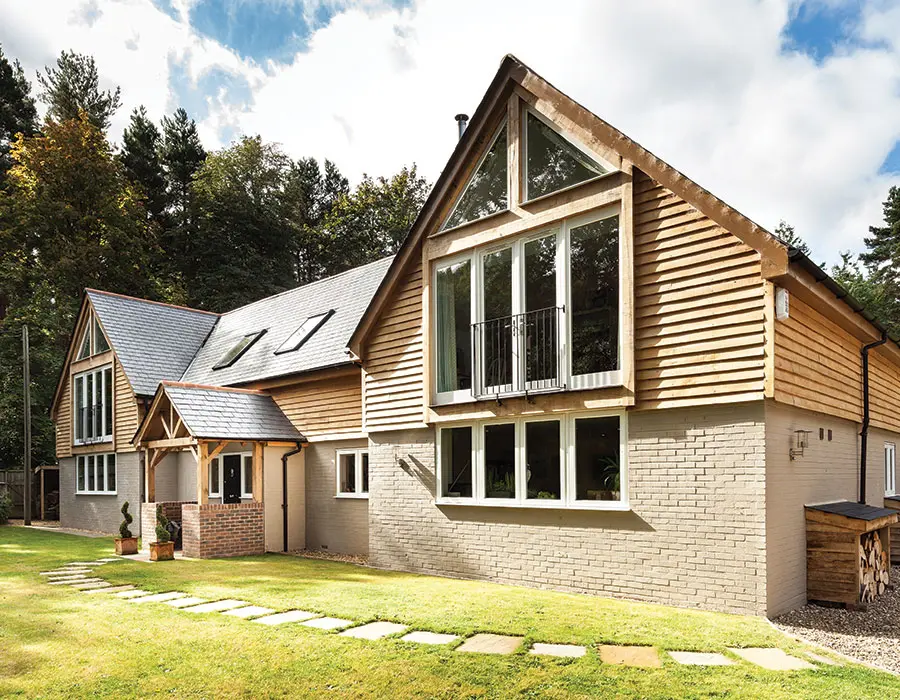
Ideal applications: When to use each
When is hardwood the right timber?
Hardwood is the timber of choice for:
- Projects with a stained finish, where the natural grain needs to shine through
- Projects in exposed or coastal environments
- Heritage or listed properties where authenticity and longevity are essential
- Clients seeking a premium material
When is softwood the best option?
Softwood is an excellent choice for:
- Residential or multi-plot developments
- Projects where painted finishes are preferred
- Cost-conscious schemes that still demand performance and quality
- Environmentally focused builds seeking faster-renewing timber species
Which timber is right for your project?
The right choice depends on the project’s exposure, client preferences, finish, and budget. Thanks to Bereco’s engineering and treatment processes, there’s no compromise on lifespan or maintenance between hardwood and softwood , so the decision often comes down to appearance and cost.
Painted finish? Softwood may be ideal.
Looking for a premium stained grain? Hardwood is the better match.
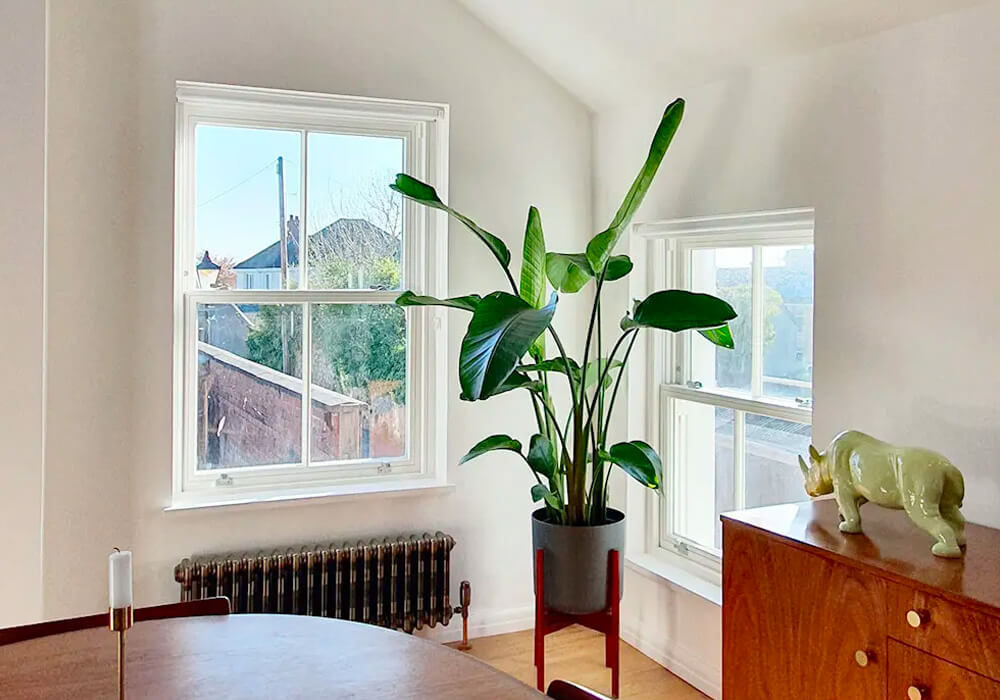
How Bereco supports trade professionals
Bereco partners with trade professionals to deliver timber windows and doors that combine performance, sustainability and design flexibility. Our products are made from certified sustainable hardwood and softwood, with advanced coatings and architectural ironmongery included as standard. With a tailored service, we help you specify the right timber, style, and finish for every project, from new builds to sensitive refurbishments.
Our windows are designed to meet and exceed building regulations, with extensive warranties and a proven track record across a wide range of property styles.
If you’re specifying timber windows for your next project and weighing up hardwood vs softwood windows, speak to Bereco’s expert team today. We’ll guide you through the technical details, sustainability credentials, and cost implications to ensure you choose the right timber for long-term performance and client satisfaction.
Contact Bereco for tailored advice, detailed specifications, and a partnership built on quality and expertise.



